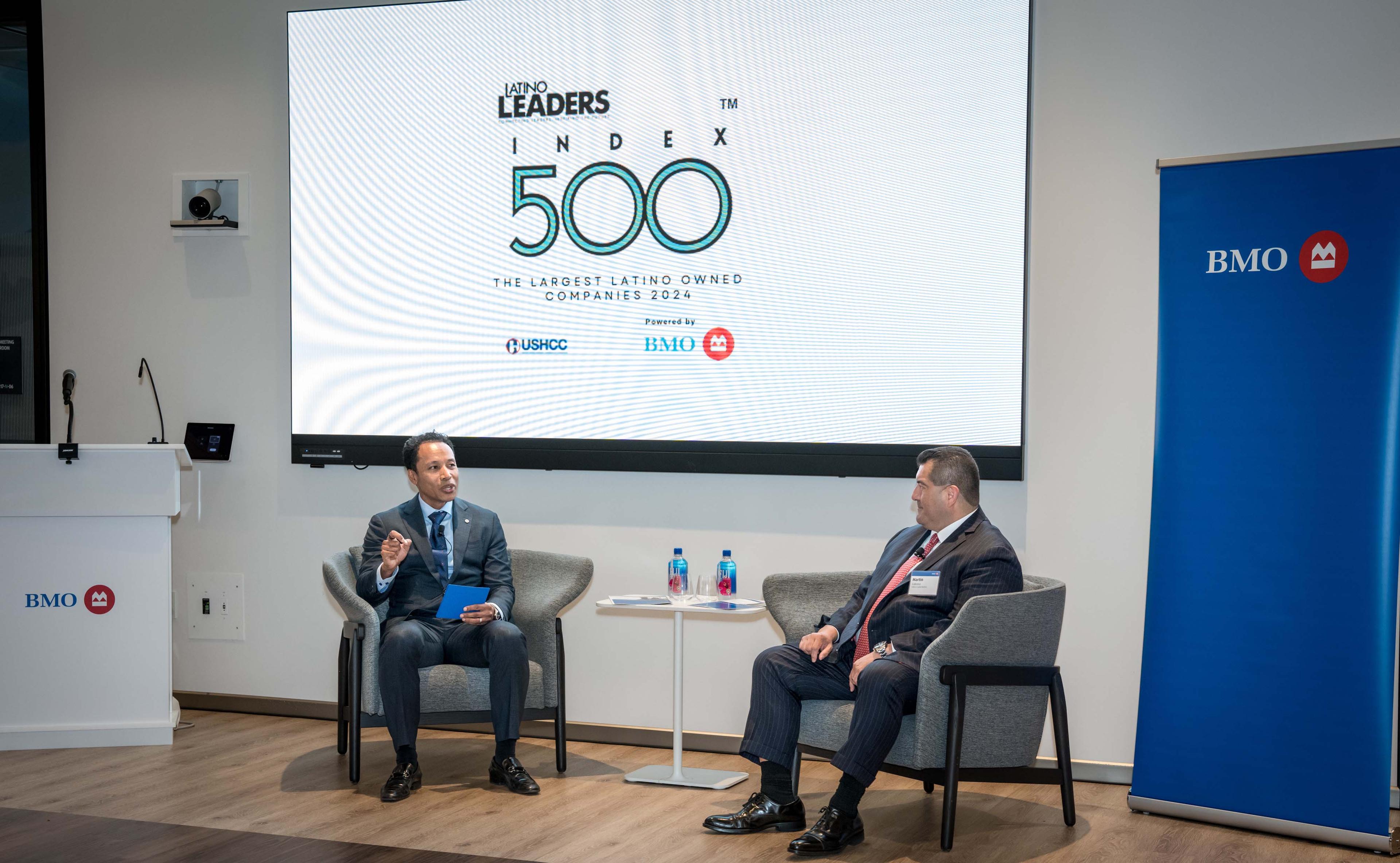If Latinos in the U.S. were a separate country, they would rank as one of the largest economies in the world, with a GDP of more than US$3 trillion.1
To help boost awareness about the contributions of this important community, BMO’s Economic Equity Advisory Group partnered with Latino Leaders magazine to rank Latino-owned businesses in the U.S. by revenue. The Latino Leaders Index500, powered by BMO, aims to better understand the needs of this important segment of the economy and help investors recognize the economic muscle and potential of Latino businesses.
One of the more notable voices from this community is Martin Cabrera, CEO, Cabrera Capital Markets, which has issued more than US$330 billion in debt for municipalities and more than US$400 billion in debt and equities for corporations. At a recent event in Chicago to celebrate the Latino Leaders Index500, I had a chance to sit down with Cabrera and discuss his journey as an entrepreneur and what he thinks the Latino community can do to succeed.
Markets Plus is live on all major channels including Apple, and Spotify.
Start listening to our library of award-winning podcasts.
Untapped market
Apart from Cabrera’s own remarkable story, what struck me was his observation about the power and potential of this demographic. For starters, as Cabrera pointed out, the average Latino living in the U.S. is just 27 years old, and their discretionary buying power is growing faster than that of any other cohort.
His message to his community: there is strength in numbers. “We have the power,” he told the audience. “We need to know how to coalesce it and come together.” One area where he thinks that mentality can make a difference is in California, where 42% of the population is Latino, many of whom belong to public and private unions and contribute to some of the largest pensions in the country. Cabrera argued that the collective voices of the Latino and Black communities could compel money managers running those pensions to invest in companies that promote boardroom diversity.
Latinos should talk about success and entrepreneurship
The Latino community must do a better job of supporting Latino entrepreneurs, said Cabrera. “I don’t know why, but it’s taboo to talk about wealth creation,” he said. “We can’t be shy about it. We have to be unapologetic.”
We need to do business with each other “not because we’re Latino or Black, but because we’re just great at what we do,” he said. “That’s how we continue to grow.”
One of the lessons Cabrera had to learn early on as an entrepreneur was the importance of surrounding himself with the right people, including bringing on those with skills he lacked. “I had to take a big pay cut just to start my business and pay everyone else,” he said.
As Cabrera explained, you need to have a certain drive and confidence to take on the deals that will help you grow your business, recalling an example of being offered the chance to participate in a US$2.1-billion deal. Although some within his business wondered how they would pull that off, Cabrera knew he had to find a way to make it work. “We’re going to go out there and sell, and tell everybody on the trading desk, ‘You’ve got to sell like your job depends on it,’” he recalls telling his colleagues. “It’s that motivation that keeps you up at night, and that drives you for competition, not to be the best Latino, just to be the best.”
The right partners to help you succeed
His message to aspiring entrepreneurs is that you don’t have to go it alone. Having someone outside of your family and your company who can give the kind of advice and guidance that’s tough to hear is critical, he said. Finding a banker who knows your business inside and out is important because there are going to be tough times, he noted. “They’re going to help you get through those tough times and get you back on track,” he said. “So have the right partners that are going to help you succeed.”
“A lot of banks talk about their initiatives and how they want to invest in the community, but you guys [BMO] are actually doing it,” he said. “Across the globe, you guys are having an impact.”
1 The 2023 Official LDC U.S. Latino GDP Report 6th Annual Edition
